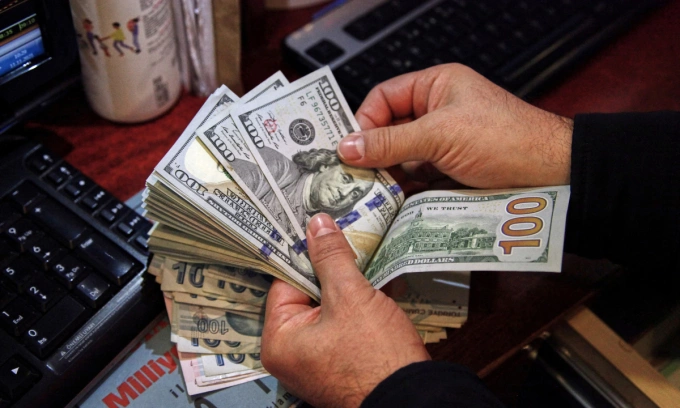Dollar Rises Against the Dong

U.S. Dollar Gains Slightly Against Vietnamese Dong Amid Global Market Movements
On Monday morning, the U.S. dollar experienced a modest increase against the Vietnamese dong, reflecting broader trends in global currency markets. The greenback saw a slight upward movement against several major currencies, signaling a cautious approach from traders and investors.
At the state-owned Vietcombank, the U.S. dollar was sold at VND26,300, representing a 0.04% rise compared to the weekend. This small adjustment highlights the ongoing volatility in the foreign exchange market. Meanwhile, the black market rate for the dollar fell by 0.23%, reaching VND26,430. These fluctuations underscore the complex dynamics influencing the value of the Vietnamese currency.
The State Bank of Vietnam also adjusted its reference rate, slightly lowering it by 0.008% to VND25,126. This move suggests a measured response to the current economic conditions, aiming to maintain stability in the face of external pressures.
Globally, the euro faced challenges against the U.S. dollar, hitting a three-week low early on Monday. This decline came amid concerns over potential trade tensions, particularly after U.S. President Donald Trump threatened to impose a 30% tariff on imports from two of the country's largest trading partners, the European Union and Mexico, starting August 1.
Despite these threats, the euro managed to recover some ground, closing the day 0.12% lower at $1.1679. In contrast, the U.S. dollar gained 0.25% against the Mexican peso, reaching 18.6699. This shift reflects the growing uncertainty surrounding trade policies and their impact on regional economies.
Other major currencies also showed mixed performances. The British pound fell by 0.07% against the dollar, reaching $1.3481. Meanwhile, the Japanese yen appreciated by 0.1%, rising to 147.28 per dollar. These movements highlight the interconnected nature of global financial markets, where developments in one region can have ripple effects across others.
Experts suggest that financial markets have become somewhat desensitized to Trump’s tariff threats, given the frequency of such announcements in recent months. Carol Kong, a currency strategist at Commonwealth Bank of Australia, noted that the limited market reaction indicates that investors may view these threats as strategic moves aimed at securing additional concessions rather than immediate actions.
This perspective underscores the importance of understanding the broader context of trade negotiations and the potential long-term implications for global economies. As markets continue to monitor developments, the focus remains on how these dynamics will shape future currency movements and economic policies.
Posting Komentar